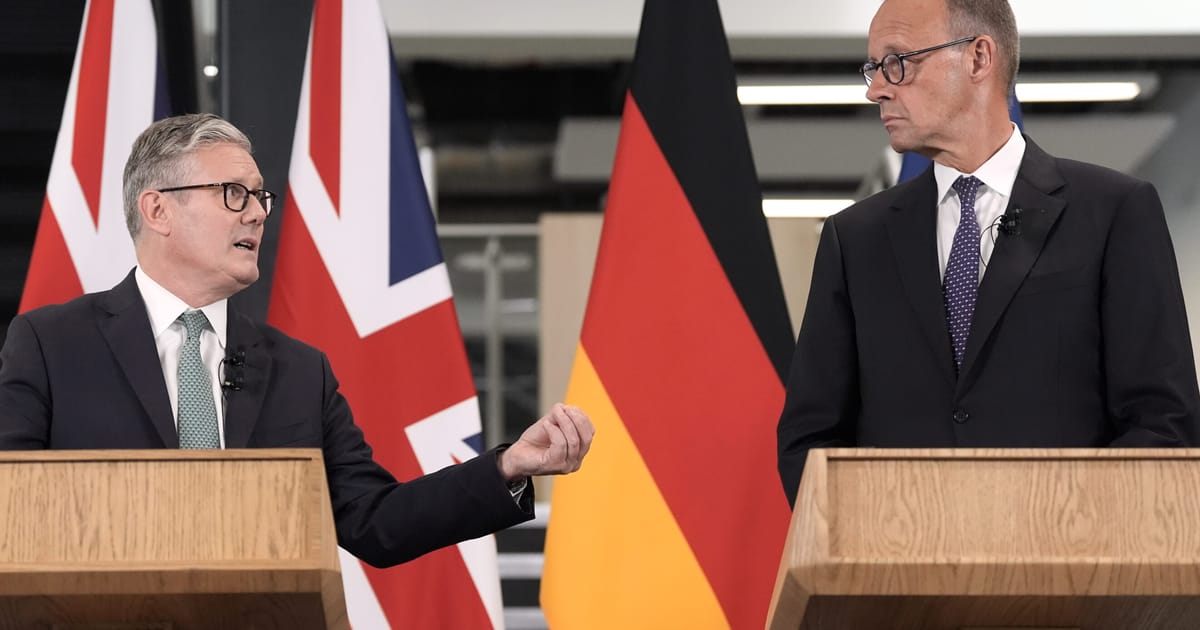

In a rapidly evolving global landscape, European and US leaders find themselves at a critical juncture. With pressing issues surrounding the conflict in Gaza and high-stakes trade negotiations, countries across the continent and the Atlantic strive for resolutions that balance national interests and international responsibilities.
The recent joint declaration by the leaders of the U.K., France, and Germany highlights the urgent need to end hostilities in Gaza. The call for peace underscores the domestic and international pressures faced by these leaders as they navigate the multifaceted dynamics of the Middle East conflict. Emmanuel Macron, the President of France, has taken a bold step by announcing plans to recognize Palestine at the upcoming United Nations General Assembly. This decision aims to create momentum for change and challenge the current status quo, urging other global powers to reconsider their positions on the longstanding conflict.
The push towards recognizing Palestinian statehood is echoed across key European capitals, with U.K. Prime Minister Keir Starmer confronting significant pressure. Over a third of U.K. MPs, including notable figures such as Deputy Prime Minister Angela Rayner and Home Secretary Yvette Cooper, have signed a letter urging the government to follow France’s lead. This move highlights the domestic political implications and the broader international expectations to resolve the humanitarian crisis in Gaza, which continues to impact global peace efforts.
Meanwhile, on the economic front, the European Union and the United States are on the cusp of a significant trade agreement. Conversations between EU Commission President Ursula von der Leyen and US President Donald Trump are expected to reach a pinnacle this weekend during their meeting in Scotland. The discussions come at a critical time as both parties stand on the verge of a trade deal that promises to fortify economic ties amidst potential tariffs. The outcome of these negotiations will have profound implications for transatlantic relations and could set the tone for future economic collaborations.
As Trump prepares to unveil his new golf course in Aberdeenshire, the stakes for a successful trade agreement are high, with President Trump characterizing the chances of a deal as balanced at “50-50.” However, the overarching goal remains clear: to avoid significant tariffs that could impact the flow of goods and services between these crucial markets. Irish Prime Minister’s optimism adds an encouraging note, expressing hope that the agreement might be signed imminently, reflecting the mutual benefits expected from such a deal.
These pivotal discussions come at a time of heightened tensions but also of potential diplomatic breakthroughs. As European nations like Portugal, which recognized Palestine in 2024, navigate their roles on the global stage, there is a shared understanding of the importance of multilateralism and dialogue. Leaders across the EU continue to emphasize the need for a collective approach that addresses both economic and humanitarian concerns.
In conclusion, the intricate weave of trade negotiations and diplomatic engagements highlights the delicate balancing act faced by global leaders. As they seek pathways to peace in the Middle East and economic partnership across the Atlantic, the choices made in the coming days will shape future relations and set precedents for resolving complex international issues. Through mindful dialogue and collaborative efforts, there remains hope for both stability and progress in these pivotal arenas. By embracing a spirit of cooperation and understanding, nations stand better poised to address the challenges and opportunities of our interconnected world.
Source: {link}
